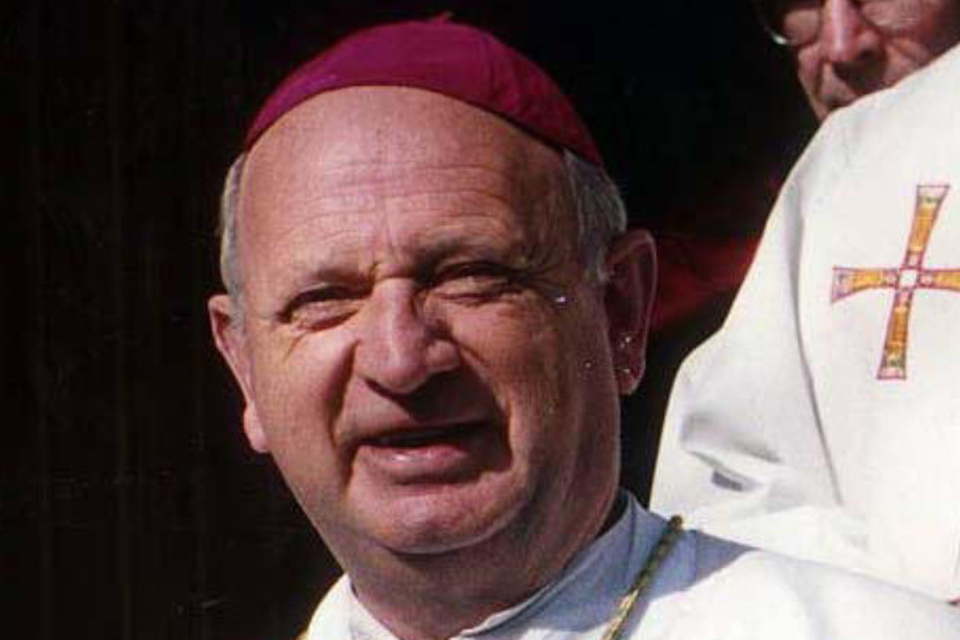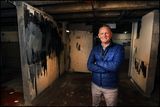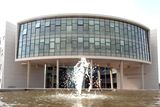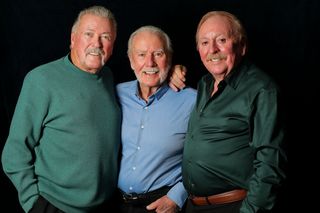Obituary: Bishop Eamonn Casey
Charismatic bishop threw it all away when he had son with his US lover, writes Jerome Reilly
CHARMING: Former bishop Eamonn Casey died last Monday
It began with a phone call to the newsroom of The Irish Times in January 1992 and ended with the disgrace of Ireland's best-known bishop, his overnight resignation and his flight into exile.
With the passing of 25 years and following his death last week aged 89, the fall of Bishop Eamonn Casey can now be seen as a pivotal moment in the relationship between Mother church and the Irish people.
It was the first cataclysmic blow to the authority of the Hierarchy. It was around that time too that attendance at Sunday Mass began its precipitous slide and the flow of vocations began to dry up.
In the intervening years as Bishop Eamonn Casey spent the twilight of his life in obscurity there has also, inevitably, been an element of revisionism.
Bishop Casey's lust was a human sin in the context of the sadistic, evil crimes against children perpetrated by others in the Church.
Yet at the time the sins of Eamonn Casey grievously wounded those blessed with faith. Those, especially the elderly, who had held him in such high regard were deeply hurt. The fact that he had played fast and loose with diocesan funds as he tried to fund his son Peter's education added further anguish.
His response to the news of that he had made his lover pregnant and his subsequent treatment of both her and their son was callous though in recent years peace, solidarity and friendship was established with his son Peter.
His death and the passing of time also gives pause to reflect on Bishop Eamonn Casey's personal qualities as a pastor.
Eamonn Casey was born on April 24, 1927, into a family of 10 in Firies, Co Kerry. He was raised mostly in Adare, where his father was a creamery manager. After secondary school he studied for the priesthood at St Patrick's in Maynooth and was ordained a priest in 1951.
He quickly became known as a charismatic and progressive churchman with a deep passion for social justice. His priestly life was marked by fearlessness. He worked tirelessly in the back streets of England with Irish emigrants who had fallen by the wayside.
In the 1960s, by then a young and energetic cleric based in Slough, he single-handedly stopped the eviction of a young couple. He then set up a loan scheme to assist young Irish emigrants and later helped to establish the respected UK charity for the homeless known as Shelter. At home he was a guiding light behind the establishment of Trocaire, the Third World charity.
He supported the Dunnes Stores' women who were locked out for four years for refusing to sell fruit that came from South Africa's apartheid regime. He was there in 1980, to witness the massacre of innocents at the funeral of Archbishop Oscar Romero, assassinated by El Salvador's military regime. As Bishop of Galway, Eamonn Casey snubbed the US President Ronald Reagan in protest at America's supply of military aid to the Salvadorean army.
Eamonn Casey was always flamboyant extrovert, hugely self-confident and given to bombast. At different times he owned a BMW, a Mercedes and a Lancia which he drove at high speed. Convictions for speeding and drunk driving followed - but his abject contrition after his detection further endeared him to his flock.
It began with a phone call to the news desk of The Irish Times. As then editor Conor Brady later recalled in a memoir, he was told by his news editor: "We've had a call from a man who says he wants to tell us about a boy in America who's the son of Bishop Eamonn Casey.
"This man's name is Arthur Pennell. He's the partner of a woman called Annie Murphy. She claims she had an affair of several years with the Bishop of Galway, Eamonn Casey, and that he's the father of her child, Peter, who's now 17 years old. She wants to tell us the whole story."
After a tortuous process, the financial aid given by Casey for the education of his son confirmed the story. But after the newspaper challenged the bishop with the details and before they could publish the story, Bishop Casey resigned and fled to America.
When the full details emerged it turned out that Annie Murphy was 23 when she began a passionate affair with the bishop who was twice her age. She had been sent by her family from America to stay with Casey who was a distant relative following her divorce.
Annie Murphy fell pregnant. She claimed that her former lover tried to persuade her to put the baby up for adoption. The relationship disintegrated and she went home.
It later emerged that Bishop Casey had used some €70,000 of diocesan funds to support his former lover and their son.
In 1993, Eamonn Casey told journalist Veronica Guerin in an interview: "Celibacy was unquestionably a factor. Two or three times in my seven years at Maynooth it became very much a factor and I had to engage in serious counselling sessions. There were no girls involved at the time".
After fleeing Ireland, Eamonn Casey joined the St James Society, a Boston missionary order and worked as a curate in a poor parish in Ecuador. He worked tirelessly, taught himself Spanish so he could say Mass in tiny churches and helped raise money to build a school and a modest hospital.
Eamonn Casey accepted an offer to become a curate in Sussex and then in 2006 he came home to Ireland and moved into a house in Shanaglish, Co Galway.
Bishop Casey died last Monday at the nursing home in Newmarket-on-Fergus, Co Clare where he had been cared for since 2011. He had suffered for many years with Alzheimer's disease.
Join the Irish Independent WhatsApp channel
Stay up to date with all the latest news















